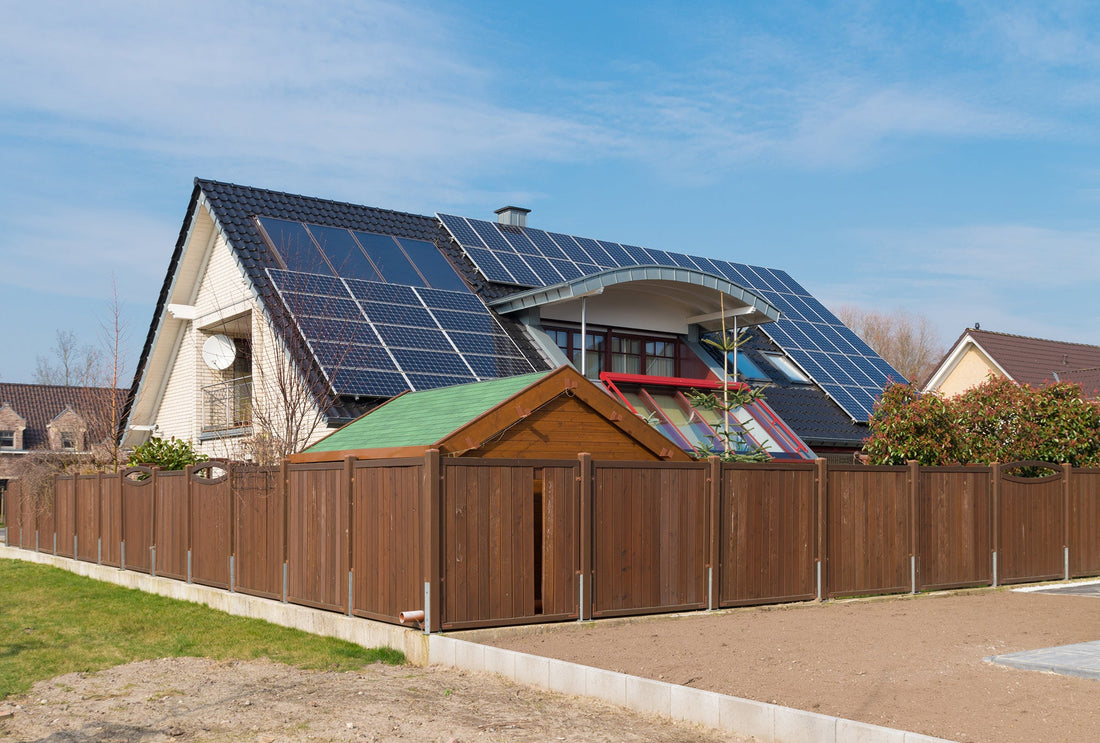Listen to this article
Powered by Listen Now!
Overcoming Challenges in Off-Grid Battery Storage Systems

Off-grid battery storage systems are beneficial but definitely bring a couple of challenges with them. The entire setup requires meticulous installation in the first place and the process of supplying energy using these systems undergo a lot of steps, making occasional issues inevitable.
Luckily, these can be resolved without much trouble. The key here is extra preparation as most of these challenges can be avoided whether it's about installation or operation.
If you're looking to get your own off-grid system soon, planning to go solar, or have an existing package installed already, this one's for you. Keep reading & get familiar with the usual bumps you may have to deal with while enjoying your new-found energy independence.
Off-Grid Living Woes: Common Issues With Battery Storage Systems
Upfront Costs
First things first: An entire off-grid setup will consist of solar panels for generating solar energy, a battery for energy storage, a solar charge controller, and an inverter. It's no secret that opting for an off-grid solar power system complete with batteries and all accessories is pricey, especially now that they are designed for complete grid independence.
Before heading to your chosen system provider, have an estimate of how big your system needs to be. This way, you'll also have an idea of how much you need to take out and what options are available to you.
Complex Installation
A residential solar battery storage system requires complex installation that combines multiple energy sources to power an entire household. Whether you're opting for low-voltage storage or high-voltage storage, the set-up process will most likely be time-consuming & complicated—a job suited mostly for professionals or experienced solar users.
Limited Energy Storage
While batteries are great for storing energy, they can sometimes be insufficient, especially for prolonged days of reduced sunlight exposure. Even a big power pack may still not be enough for an entire week with not much sunlight, so it's always best to have backup power at hand such as another battery pack or an inverter generator.
Another magic word here is “load management.” You’ll definitely know if your available stored energy might be insufficient due to monitoring devices. In this case, allocate power to your most essential appliances only & make sure to unplug them once you’re done using them.
Weather Dependency
Off-grid battery storage systems are heavily reliant on solar energy. Your main problem here will mostly arise during inclement weather conditions. Extended cloudy days and shading will impact your system's energy production big time, leading to a shortage in your energy supply.
Tips For Successful Off-grid Living With A Battery Storage System
We’re done with the woes, now for the tips: read on for the best pointers you can take note of for stable, uninterrupted off-grid power.
Find out how much sunlight reaches your area
One of the indicators of how efficient an off-grid battery system will be is knowing how much sun exposure your area gets. For instance, if you're from a sunny location, you might be able to get away with a smaller solar system which also translates to more affordable upfront costs.
Monitor your system
Install a battery monitoring system for easy tracking of the current state of your power pack. There are several modern battery monitors that alert you to any possible issues with your entire setup and display real-time data on your accumulated amp-hours by keeping tabs on your home's energy usage.
Go for a high-voltage system
A lot of solar off-grid systems use a 12V battery. While these give you a wide variety of choices, it's the most susceptible to voltage drops. Basically, the more resistance you get from wires, the less actual voltage you will be left with, so a 24V or 48V battery would be the better choice.
Keep your system within 100 amps
Have you noticed most solar charge controllers in the market do not go beyond 80 amps? This is because working with extremely high currents poses high risks and most solar batteries are not designed to continuously provide high currents as well.
Regular system maintenance goes a long way
Solar panel cleaning and inspection of system components can help extend the lifespan of your off-grid system if done consistently. It's the easiest way to keep everything in optimal condition, detect potential issues early and resolve them right away.
Backup power is a must
As mentioned earlier, a possible shortage of available power due to weather conditions calls for high-capacity backup power. It ideally should be as reliable as your system to ensure an overall smooth remote living experience.
Go Off-The-Grid In Confidence With VoltX Energy
When it comes to off-grid power, look no further than VoltX Energy. We have a full range of packages designed to accommodate a variety of energy requirements. Off-grid cabin? Energy-intensive home? Workshed? No worries, we have systems of different sizes to efficiently power them all!
All VoltX Energy components are of guaranteed quality. This is your best-stepping stone to achieving high-level energy independence, backed by trusted brands, top-tier workmanship, and years of experience.
Request a quote today and get in touch with our experts to help you determine the best off-grid system for your needs.




